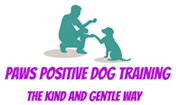
I am sure that with everything that’s happening at the moment we could all do with a distraction, so let me tell you something that you possibly don’t know: it’s International Pooper Scooper Week. This should be the time of the year that we get serious about dog poo.
While you probably don’t need a reminder to clean up after your dog, you may be interested in what are the reasons for doing so.
All dog owners know that they are supposed to clean up after their dog’s mess when they are out walking and it’s good to know that most dog owners comply with these rules but there is still remains a good proportion of dog owners who deliberately avoid cleaning up after their furry friends, or only pick up when someone is watching.
I often go to my local park and end up standing in dog poo and it is one and of the messiest unpleasant and potentially unhealthy things that can happen to a child or adult and no one should have to go through this just because some owners are lazy.
Here are some important reasons why we should all pick up, whether that be on streets, fields or on our own property.
Your legal obligation
The law in the UK states that all dog owners must pick up after their dogs when in a public space. failing to do so can result in prosecution, with fines of £100 issued to offenders leading up to £1000 and a trip to the magistrate’s court if fines are unpaid after a week of issue.
Just good Manners
To clean up after your dog is plainly just good manners and nobody else should have to deal with the result of standing in it because you decide to not pick it up. how awful is it to stand in it and the trail it back in your home and then have to not just clean it off your shoes but your carpet and floors too. I am not a dog owner but as a dog walker and home boarder, I see it also gives dog owners and dog professionals a bad name and makes people hostile to dog walkers in their area, even though they all possibly pick up.
Prevent infections
We all know how awful the smell of dog waste is but it also carries and spreads lots of dangerous diseases as well. Dog Poo is full of bacteria and carries diseases such as parvovirus, cryptosporidium, salmonella and many more, all of which can make other dogs and people very ill and can even prove fatal. Dog faeces transfer worms ad over time can impregnate the ground as well, placing all other dogs who walk in that area at a preventable risk.
Where should I dispose of dog waste? If your dog defecated on public land, the bagged dog waste can be placed in any public litter, dog waste or household waste bin
 Roll on effect
Roll on effect
Making sure you clean up after your dog reduces the chance of either yourself or someone else stepping in it but may also mean that because your area you walk in stay clean, it makes the dog walkers more inclined to pick up after their dogs too.
Protecting The Environment
Dog Poo is classed by the Environment Agency as an environmental pollutant. This means that that the risks caused by the faeces go above just the dangers and inconvenience of people coming into contact with it.
Dog Poo is not one of the faeces based fertilizers that is actually good for gardens and green spaces. It does have a direct and harmful effect upon the land.
The viral and bacterial load in the faeces becomes transmitted to the land that it sits on, as do parasites such as various types of intestinal worms, which will then lie in wait to infect another person or dog.
This is one of the reasons why it’s as important to pick up in your own garden immediately just as you would if you were out and about.
Reducing Coprophagia
What is Coprophagia? its the term used for a not so nice habit of dogs eating faeces and sometimes their own. Clearing up after your dog when they toilet, in both your own garden or out and about can reduce the opportunities for dogs to eat poo.
When on your own property or anywhere outside, remember the drill Scoop it! Bag it! Bin it. Oh and don’t forget to wash your hands for 20 seconds





Leave A Comment